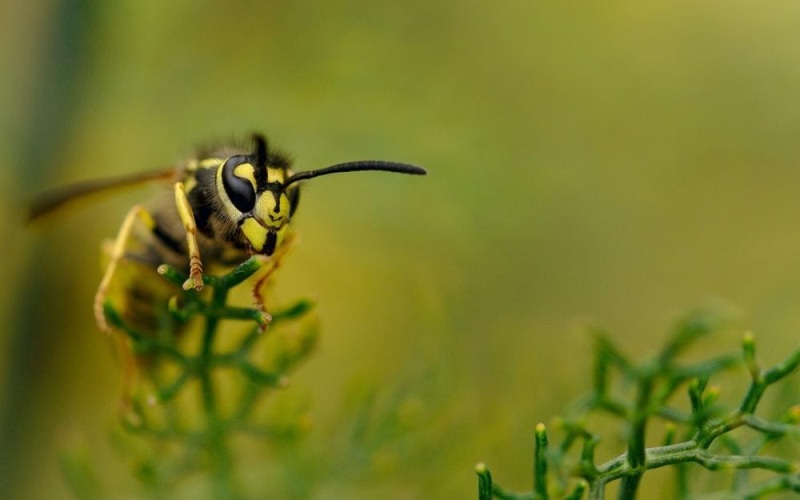Wasps are tiny insects but are feared and hated by the vast majority of the UK population. We totally understand this, especially if you’ve disturbed them and then been stung. But this really isn’t a reason to fear them at all.
In this short (but insightful article), we are going to look at some of the most surprising myths about wasps that will hopefully make you fear and hate them a lot less.
Wasp Stings Don’t Actually Hurt (It’s You!)
When a wasp stings you, it will inject venom into your skin. It’s a complete myth that this venom causes pain and discomfort. The symptoms you feel when you get stung are actually the result of your own body reacting to it. Your body causes the pain, swelling and itching after you’ve been stung – it isn’t actually the wasp that’s hurt you.
The average person in the UK is stung roughly 3 times in their lifetime, but only a tiny percentage have a severe reaction, so you really haven’t got anything to worry about.
Wasp Traps Work

This one is a complete myth. It’s true that wasps are attracted to traps, so they do work a little bit. The problem is, they only capture a small amount of wasps and have very little or no effect on the rest of the colony that are hiding out. Traps are not designed to completely get rid of wasps and their nests. If this is your goal, call a wasp removal company (especially if you have a full-on infestation and young children at home.
Wasps Only Eat Sweet Things
We think this myth exists because humans and wasps both meet over the dinner table, where wasps can be attracted to sweet smells. It’s true that during the late summer season, they’re attracted to these foods, but for the majority of the year, they’re actually more attracted to meat. Wasps are brilliant insect hunters and can play a key role in keeping your garden free of pests, so embrace their presence; they’re doing you a favour.
Wasps Will Chase You on Purpose
Wasps will not chase you unless you catch them off guard. You can stand a couple of metres away from a wasp nest, and as long as you don’t make any sudden moments, they’ll leave you alone. But, if you do disturb the nest, then be prepared to run as they’ll most likely come towards you to defend themselves.
It’s Completely Safe to Remove a Nest at Night

Whilst this myth has been founded in path truth, it’s actually false. It’s true that removing a wasp nest at night can be a little bit safer, but it isn’t completely safe and fool proof in the slightest. Wasps that are disturbed during the night-time will still sting you regardless of what the time is.
Using Baking Soda Can Help With a Sting
If you’ve heard that treating a wasp sting with baking soda works, don’t bother; it’s a myth. But we completely understand why because baking soda is alkaline, meaning that it should neutralise venom injected via a wasp sting. Here’s the twist, wasp venom isn’t even acidic, meaning that this method will have zero effect.
Wasps Don’t Pollinate Plans Like Bees Do
Surprisingly, this is completely false. Indeed, bees play a key role in pollination. However, most wasp species also ingest nectar in addition to other foods they like. So, think about all the charities trying to preserve our beloved bees – shouldn’t we be doing the same for our wasps? We definitely think so.
Remember, Look After The Wasps
So, there you go. The surprising myths you didn’t know about wasps. The poor little insects don’t deserve the reputation they have and are a lot more beneficial to our ecosystem than most people think. So, be nice. Look after our wasps, and they’ll look after us too!






